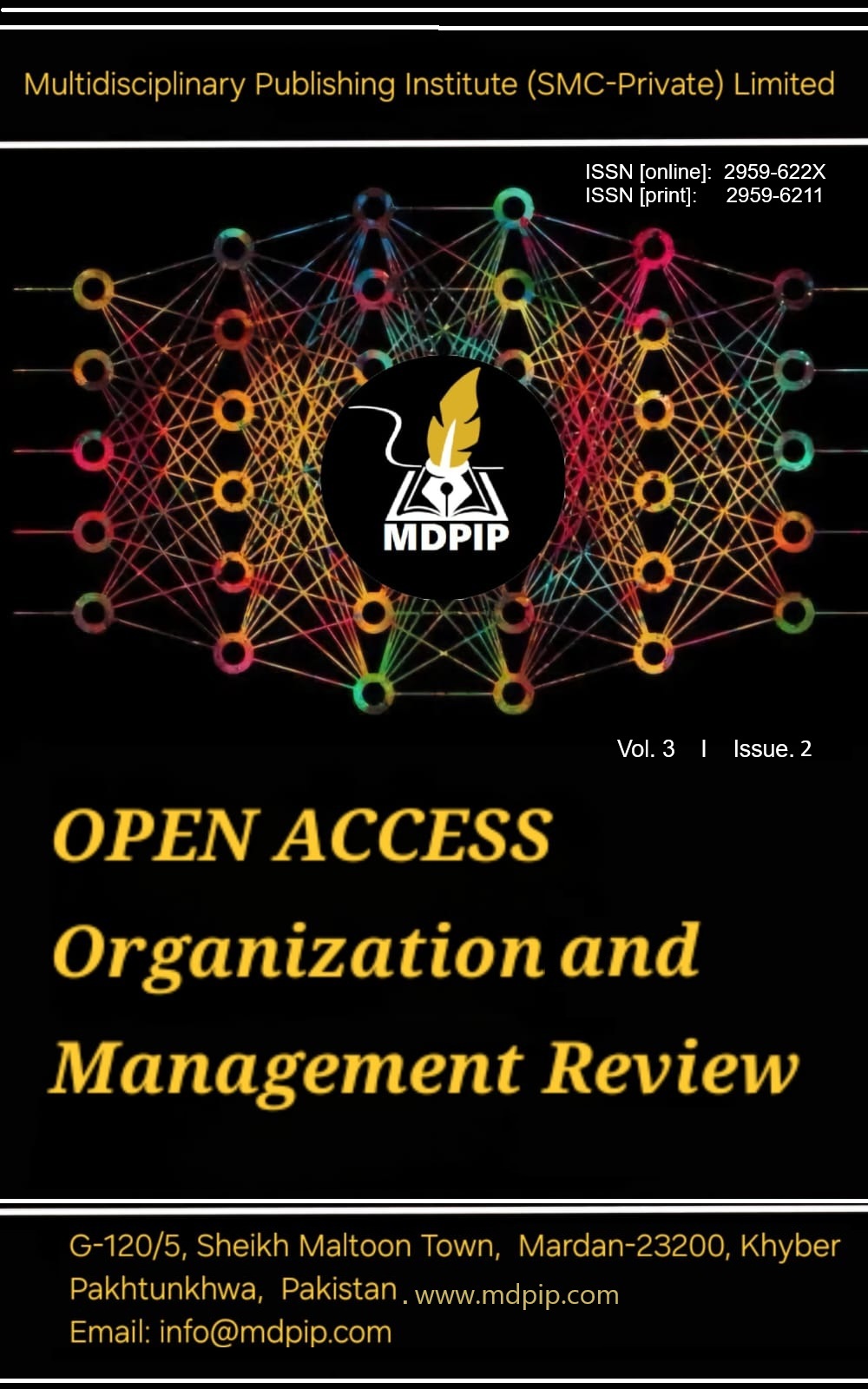Associative Relation of the Family’s Monthly Household Income with Students’ Academic Success
DOI:
https://doi.org/10.59644/oagmr.3(2).167Keywords:
Household Income, Poverty, Socio-Economic Status, Academic Achievement, Quantitative Survey DesignAbstract
Low monthly household income families and their dependents face diverse miseries. In this context, the researchers attempted to investigate the effects of families' monthly household income on their dependents' academic achievements. Household income was determined in terms of the socio-economic backgrounds of the students. This quantitative study was conducted using a survey design. The population was divided into two strata, i.e., the students enrolled in the 10th class in the Public Secondary Schools of District Dera Ismail Khan and the Parents of the respective students. Socio-economic status was judged in terms of the monthly income of the family, level of parental education, availability, and use of learning facilities, and the amount spent on providing extra coaching and tuition facilities to the students. The study's results revealed that students' academic achievements are directly correlated with their socio-economic background. The study concludes that the provision of extra coaching and other educational facilities has a positive effect on children's academic performance, and children who are deprived of these benefits at home score low in academic achievement. The study was conducted in Dera Ismail Khan, however, in future, the researchers can take a step ahead and can conduct with a larger sample size from different districts of the province of Khyber Pakhtunkhwa. The study offers logical and workable suggestions and recommendations to the administrative machinery to understand the dynamics by reflecting these recommendations in their policy decisions.






